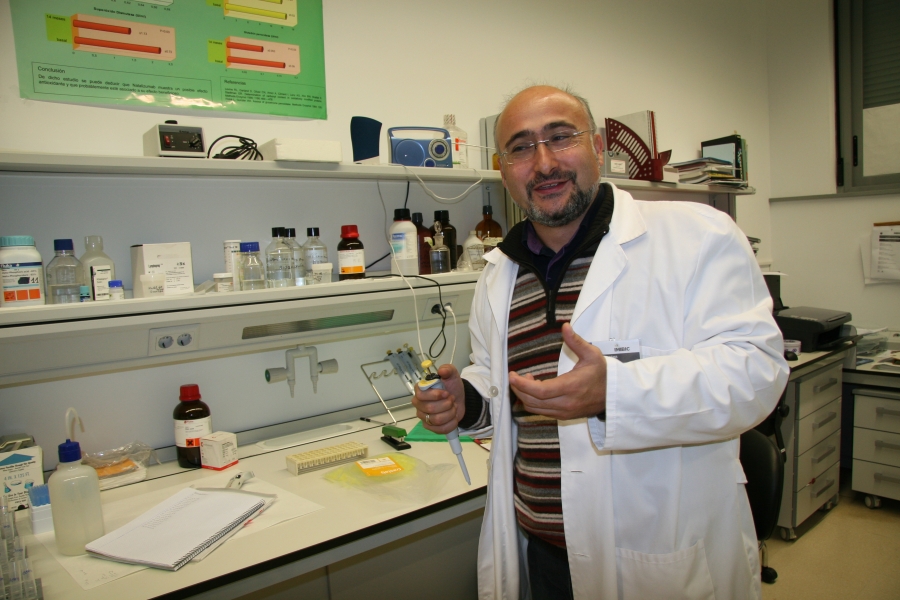 Transcranial magnetic stimulation, a noninvasive method used in the treatment of different psychiatric disorders such as depression, could broaden its use to the field of neuroscience thanks to the work of investigation team B05 of the Maimonides Institute for Biomedical Research. The team has successfully tried out its benefits on experimental models in the treatment of Huntington’s disease, generally known as “St. Vitus’ dance” which, according to many scientists, the witches of Salem had suffered from. Up to now, the investigations have only been carried out on genetically modified rat models by the scientific team and have only been published in journals such as Journal of Neurochemistry (2006) and Current Medicinal Chemistry (2010), although as explained by the investigation team leader, professor at the University of Cordoba Isaac Tunez, the objective is to achieve beneficial results for patients.
Transcranial magnetic stimulation, a noninvasive method used in the treatment of different psychiatric disorders such as depression, could broaden its use to the field of neuroscience thanks to the work of investigation team B05 of the Maimonides Institute for Biomedical Research. The team has successfully tried out its benefits on experimental models in the treatment of Huntington’s disease, generally known as “St. Vitus’ dance” which, according to many scientists, the witches of Salem had suffered from. Up to now, the investigations have only been carried out on genetically modified rat models by the scientific team and have only been published in journals such as Journal of Neurochemistry (2006) and Current Medicinal Chemistry (2010), although as explained by the investigation team leader, professor at the University of Cordoba Isaac Tunez, the objective is to achieve beneficial results for patients.
Huntington’s disease is classed as a “rare disease” which affects one in every 10,000 people in Spain. It is inherited genetic disease responsible for neurodegeneration which is generated by the defective coding of proteins and has a high death rate.
The team’s investigation of this disease and the transcranial magnetic stimulation have been widely spread through journals such as: Neurosignals (2010), Revista de Neurología (2009), Medical Chemistry (2009) and Brain Research Bulletin (2008) ; and have helped gain the collaboration with Dr. Drucker-Colin (the National Autonomous University of Mexico) and recently with Dr. Pascual-Leona (Professor of Neurology at Harvard Medical School).
On a parallel level the team led by Isaac Tunez has kept open a line of basic investigation related to multiple sclerosis in vivo animal models in order to continue studying transcranial magnetic stimulation. The initial findings of this new line of investigation will be published shortly, as Isaac Tunez explained.
For more information about the team please click here:
http://www.uco.es/organiza/departamentos/bioquimica-biol-mol/git.htm
Jueves, 22 Diciembre 2016 16:58
Possible treatments for Huntington's disease and multiple sclerosis are being tested on rats
Escrito porAn interdisciplinary team from the Maimonides Institute for Biomedical Research of Cordoba (Spain) has availed the use of transcranial magnetic stimulation in the improvement of well known genetic disorders such as “St. Vitus’ dance” and have studied its effects in multiple sclerosis in-vivo animal models
Publicado en
Biomedicina y salud

